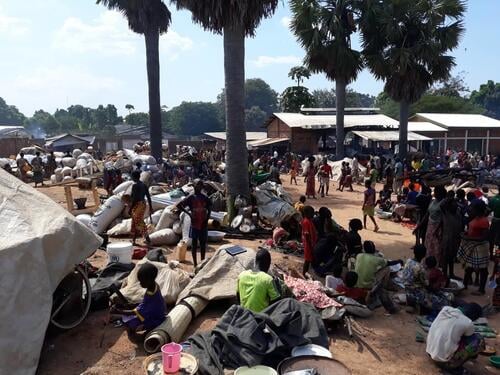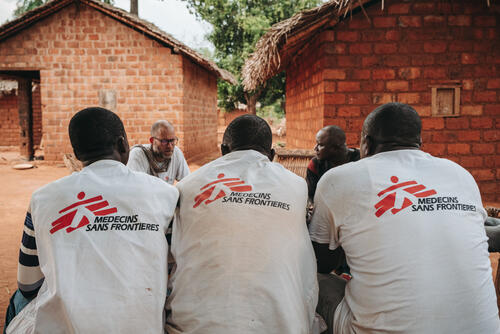Since the civil war of 2013, CAR has been marked by cycles of intensive violence. Fighting between the government and non-state armed groups, spurred by an election process, escalated in early 2021.
MSF sees the direct consequences of violence on the health of individuals and entire communities. There is a severe lack of access to healthcare; trained health workers are scarce, health services are poorly resourced and often targeted by the conflict; and patients need to travel hundreds of kilometres on dangerous roads to reach medical structures.
In CAR, we focus on treating victims and survivors of sexual violence; provide sexual and reproductive healthcare, including maternal healthcare; and provide treatment to people living with HIV.
Our activities in 2023 in Central African Republic
Data and information from the International Activity Report 2023.
2,499
2,499
€70.6 M
70.6M
1997
1997
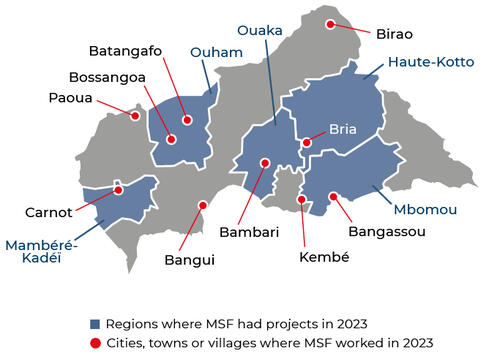

725,700
725,7
10,600
10,6
9,230
9,23

6,030
6,03

Measles is a steady, silent killer among COVID-19
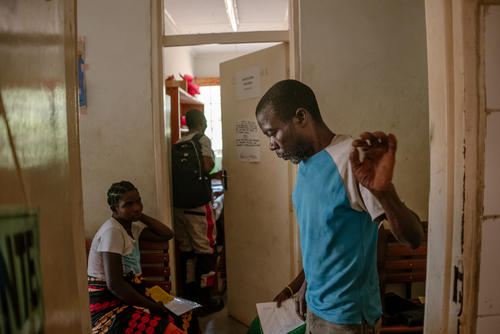
AIDS death toll stagnating due to lack of testing at community level
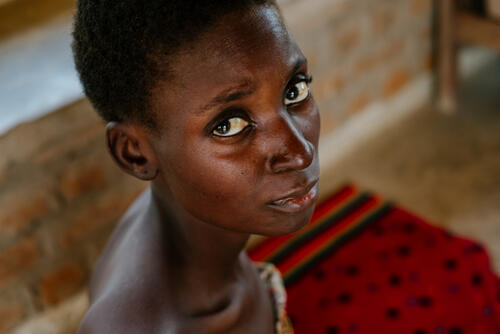
MSF report "No time to lose" examines the fight against AIDS in 15 countries
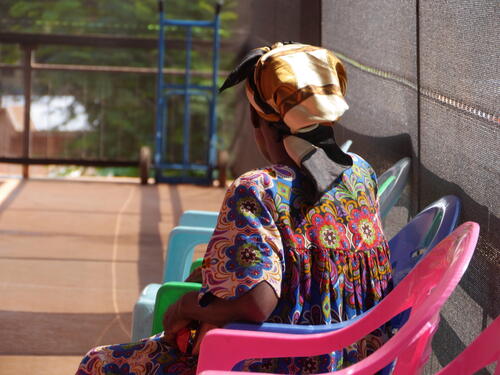
Silence aggravates the wounds of sexual violence
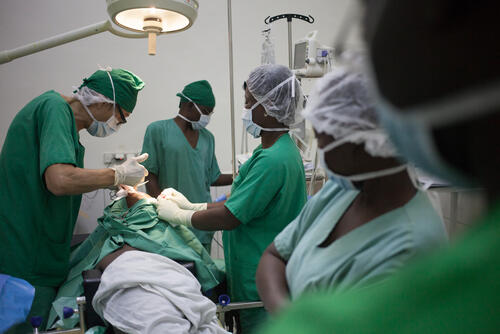
“It felt like it was raining bullets” in attacks on villages that kill over 50
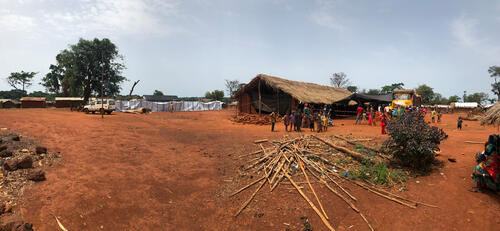
"We have not seen any doctors in Mingala for more than two years"
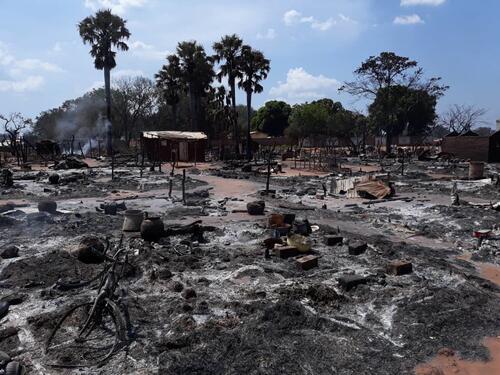
Unprotected: Report on violence and lack of protection for civilians in CAR
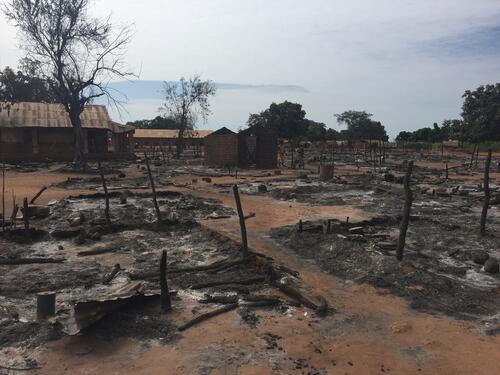
More than 5,000 people sheltering in MSF-supported Batangafo hospital after violent clashes
